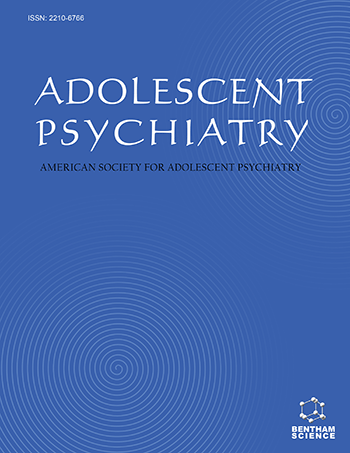Abstract
Background: Transitional Age Youth (TAY), the period between 15-25 years old, is now recognized as a unique developmental stage and a highly vulnerable time period for the onset of Serious Mental Illness (SMI).
Objective: The study aimed to inform readers about TAY with SMI to improve recognition of their developmental needs and improve patient care.
Methods: The authors describe their work with TAY experiencing SMI on inpatient psychiatric units by citing case examples that illustrate individual treatment issues, the level of family involvement in care, and social/systems based practice.
Results: TAY patients with SMI are more likely to adhere to ongoing psychiatric care when their developmental needs are addressed while in an acute inpatient setting.
Conclusion: Focusing on mental health needs of TAY while applying a developmental perspective can improve patient care and compliance to treatment.
Keywords: Transitional Age Youth (TAY), Serious Mental Illness (SMI), developmental perspective, biopsychosocial formulation, treatment issues, clinical case.
Adolescent Psychiatry
Title:Transitional Age Youth with Serious Mental Illness: High Acuity Patients Requiring Developmentally Informed Care in the Inpatient Hospital Setting
Volume: 8 Issue: 3
Author(s): Timothy Van Deusen*, Cynthia Wilson, Hyun Jung Kim, Zheala Qayyum, Hun Millard and Susan Parke
Affiliation:
- Department of Psychiatry, Yale School of Medicine, West Haven Mental Health Clinic, 270 Center St., West Haven, CT,United States
Keywords: Transitional Age Youth (TAY), Serious Mental Illness (SMI), developmental perspective, biopsychosocial formulation, treatment issues, clinical case.
Abstract: Background: Transitional Age Youth (TAY), the period between 15-25 years old, is now recognized as a unique developmental stage and a highly vulnerable time period for the onset of Serious Mental Illness (SMI).
Objective: The study aimed to inform readers about TAY with SMI to improve recognition of their developmental needs and improve patient care.
Methods: The authors describe their work with TAY experiencing SMI on inpatient psychiatric units by citing case examples that illustrate individual treatment issues, the level of family involvement in care, and social/systems based practice.
Results: TAY patients with SMI are more likely to adhere to ongoing psychiatric care when their developmental needs are addressed while in an acute inpatient setting.
Conclusion: Focusing on mental health needs of TAY while applying a developmental perspective can improve patient care and compliance to treatment.
Export Options
About this article
Cite this article as:
Van Deusen Timothy*, Wilson Cynthia, Kim Jung Hyun, Qayyum Zheala, Millard Hun and Parke Susan, Transitional Age Youth with Serious Mental Illness: High Acuity Patients Requiring Developmentally Informed Care in the Inpatient Hospital Setting, Adolescent Psychiatry 2018; 8 (3) . https://dx.doi.org/10.2174/2210676608666180820153318
| DOI https://dx.doi.org/10.2174/2210676608666180820153318 |
Print ISSN 2210-6766 |
| Publisher Name Bentham Science Publisher |
Online ISSN 2210-6774 |
 43
43
- Author Guidelines
- Graphical Abstracts
- Fabricating and Stating False Information
- Research Misconduct
- Post Publication Discussions and Corrections
- Publishing Ethics and Rectitude
- Increase Visibility of Your Article
- Archiving Policies
- Peer Review Workflow
- Order Your Article Before Print
- Promote Your Article
- Manuscript Transfer Facility
- Editorial Policies
- Allegations from Whistleblowers
Related Articles
-
Promoting Well-being and Resilience in Employing a Relationship Centered Approach: A Case Study of a Pre-adolescent Boy
Adolescent Psychiatry Hold Onto Your Hat! - Handling the Roller Coaster Emotions of the College Application Process
Adolescent Psychiatry Children and War: A Personal Perspective on Childhood in World War II and Post-war Germany
Adolescent Psychiatry Opioid Use Disorders in Adolescents: A Review of Prevalence, Problems, Clinical Features and Treatment Options
Adolescent Psychiatry A Selective Review of the Research on Juvenile Bipolar Disorder: Implications for Struggling Clinicians
Adolescent Psychiatry Difficulty with Uncertainty: How It Presents in Eating Disorders and What We Can Do About it
Adolescent Psychiatry Management of a Mental Health Crisis in an International High School Exchange Student: A Case Study
Adolescent Psychiatry In-person vs. eHealth Mindfulness-based Intervention for Adolescents with Chronic Illnesses: A Pilot Randomized Trial
Adolescent Psychiatry Reconsidering the Scenario of Cyberbullying: Promoting the Internalization of the Locus of Control in Adolescents through Cognitive Restructuring
Adolescent Psychiatry Editorial: DSM-5 and the Challenge of Understanding and Treating Adolescents
Adolescent Psychiatry Assessment of Adolescent Personality Disorders Through the Interview of Personality Organization Processes in Adolescence (IPOP-A): Clinical and Theoretical Implications
Adolescent Psychiatry Cognitive Behavioral Therapy for Adolescents at Clinical High Risk for Psychosis
Adolescent Psychiatry Family Psychoeducation in Clinical High Risk and First-Episode Psychosis
Adolescent Psychiatry Preventing Child and Adolescent Mental Illness - We Got This
Adolescent Psychiatry Editorial: From Research to Clinical Practice in Adolescent Psychiatry
Adolescent Psychiatry Trauma Interventions using Mindfulness Based Extinction and Reconsolidation (TIMBER<sup>©</sup>) as Monotherapy for Chronic PTSD: A Pilot Study
Adolescent Psychiatry Adam and Eve - The Story of Two Adolescents
Adolescent Psychiatry Environmental Risk and Protective Factors and Their Influence on the Emergence of Psychosis
Adolescent Psychiatry Self Destructive and Self Harm Behavior in Adolescence — An Integration of Dynamic and Empirical Psychological Models
Adolescent Psychiatry The Assessment of Attenuated Psychotic Symptoms in Adolescents: Concepts, Practical Approaches and Prediction of Risk
Adolescent Psychiatry

























